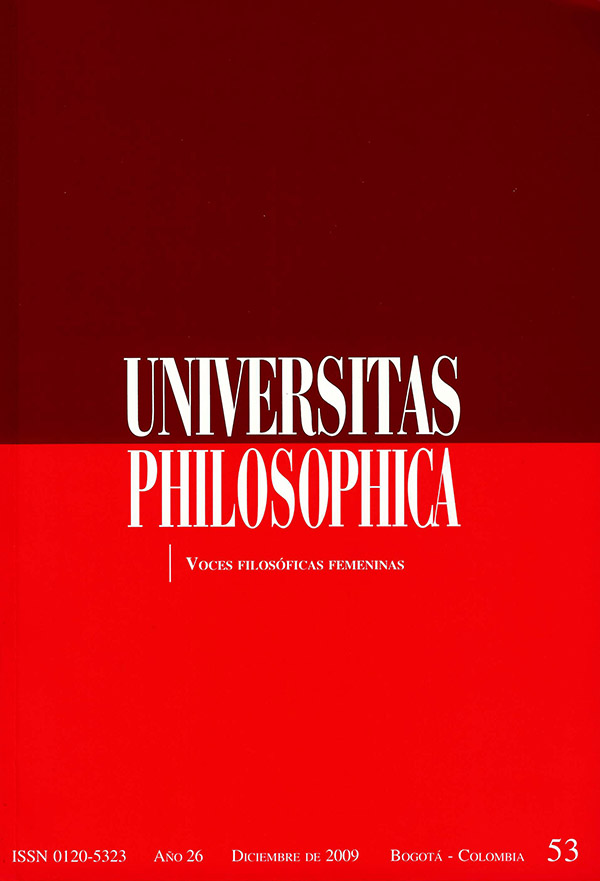Resumen
Por fuera de todo contractualismo liberal y de todo intelectualismo impersonal y abstracto, la confianza –presente en la noción humeana de simpatía como condición de la naturaleza humana– moldea nuestro carácter y fundamenta nuestras distinciones morales entre la virtud y el vicio. Para Baier, sostiene la autora de este artículo, la confianza es un poderoso catalizador de nuestra reflexión moral toda vez que ésta se origina en la modulación del poderoso deseo de compañía, y las contradicciones personales e interpersonales. A partir de una lectura innovadora de Hume, se aprende que es preciso ser cada vez menos los jueces morales y cada vez más unos aprendices que con humor conversan sobre sus convicciones y sospechas. La sola reflexión destruye la vida. Todo orden moral, entonces, emerge con parsimonia de una comunidad de personas que, sabedoras de sus matrices socioeconómicas y culturales, juzgan la virtud y el vicio por estándares compartidos.
Ante el horror de una vida en la que reine la sospecha generalizada –conjetura la autora del artículo– las mujeres poseen suficiente deseo, sensibilidad y competencia, así como la convicción y el valor de participar en una educación sentimental de la humanidad que permita esperar los beneficios de una confianza sólida y sostenible, mediante una conversación y una escritura apropiadas, estableciendo así un pensamiento moral innovador y riguroso.
Esta revista científica se encuentra registrada bajo la licencia Creative Commons Reconocimiento 4.0 Internacional. Por lo tanto, esta obra se puede reproducir, distribuir y comunicar públicamente en formato digital, siempre que se reconozca el nombre de los autores y a la Pontificia Universidad Javeriana. Se permite citar, adaptar, transformar, autoarchivar, republicar y crear a partir del material, para cualquier finalidad (incluso comercial), siempre que se reconozca adecuadamente la autoría, se proporcione un enlace a la obra original y se indique si se han realizado cambios. La Pontificia Universidad Javeriana no retiene los derechos sobre las obras publicadas y los contenidos son responsabilidad exclusiva de los autores, quienes conservan sus derechos morales, intelectuales, de privacidad y publicidad.
El aval sobre la intervención de la obra (revisión, corrección de estilo, traducción, diagramación) y su posterior divulgación se otorga mediante una licencia de uso y no a través de una cesión de derechos, lo que representa que la revista y la Pontificia Universidad Javeriana se eximen de cualquier responsabilidad que se pueda derivar de una mala práctica ética por parte de los autores. En consecuencia de la protección brindada por la licencia de uso, la revista no se encuentra en la obligación de publicar retractaciones o modificar la información ya publicada, a no ser que la errata surja del proceso de gestión editorial. La publicación de contenidos en esta revista no representa regalías para los contribuyentes.


